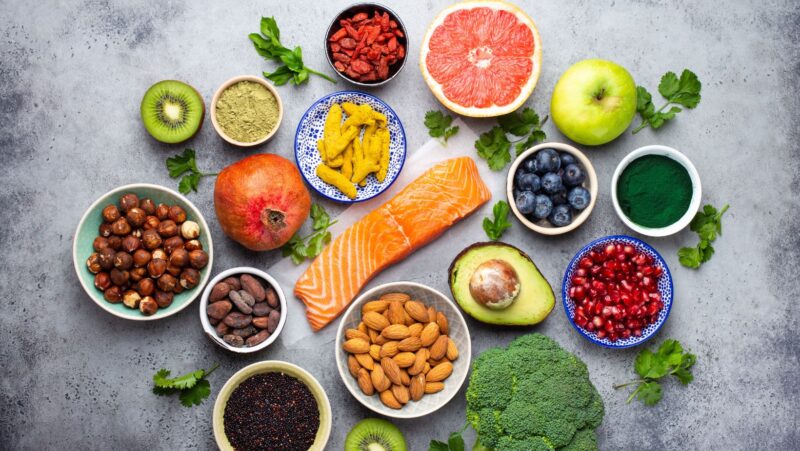
Embarking on the path to sobriety? You’re not alone. It’s a brave journey, often filled with challenges, but the rewards are immeasurable. An often overlooked aspect of this journey is the role nutrition plays in alcohol use disorder recovery.
Getting your body back to a healthy state is critical, and the right nutrition can make a world of difference. In this article, we’ll delve into eight key nutritional tips that can aid your recovery. It’s not just about abstaining from alcohol, it’s about fueling your body with what it needs to heal, grow, and thrive.
Understanding the Role of Nutrition in Alcohol Use Disorder Recovery
Impact of Alcohol on Nutritional Status
Alcohol use disorder negatively impacts nutritional status. It does two things primarily. Firstly, it reduces nutrient absorption, and secondly, it decreases the appetite. As a result, people with alcohol use disorder often suffer from malnutrition. You may ask, “What does malnutrition actually mean?” Malnutrition refers to both under-nutrition (such as vitamin A deficiency) and over-nutrition (like obesity). For instance, regular high alcohol consumption can lead to deficiencies in essential nutrients such as vitamins B and C, and minerals like zinc and magnesium.
How Proper Nutrition Aids in Recovery
Proper nutrition aids significantly in alcohol use disorder recovery. It helps rectify the nutritional imbalances that occur due to alcohol misuse. For example, a balanced diet can replenish the deficit of essential nutrients in the body.
Recovery from alcohol use disorder isn’t just about quitting drinking; it’s also about healing the body and the mind. Good nutrition helps the healing process. For instance, the liver can regenerate itself if given the right nutrients and time to heal. Foods beneficial for the liver, such as beans, berries, and whole grains, support this healing process.
Key Nutritional Tips for Alcohol Recovery
As learned, nutrition serves an unquestionable role in assisting the body during the alcohol use disorder recovery process. Here are some key tips to consider:

Rehydrate Your Body
Take the first step by adequately hydrating your body. Consumption of alcohol dehydrates the body, removing essential electrolytes that aid in proper bodily function. Incorporating fluids like water, herbal teas, and fruit-infused water into your routine assists in replenishing these lost electrolytes.
Repair with Proteins
Repairing the body is crucial, especially the liver and brain, significantly affected in alcohol users. Protein-rich foods, such as lean meats, eggs, and tofu, provide amino acids that aid in this reparation.
Balance Your Diet with Vitamins and Minerals
Next, balance out your diet with necessary vitamins and minerals, which alcohol use often depletes. Green leafy vegetables, fruits, whole grains, and fortified cereals are ideal sources of these nutritional elements.
Focus on Gut Health
Alcohol harms your gut health, leading to digestive challenges. Foods enriched with probiotics, such as yogurt and fermented foods, restore gut health and enhance nutrient absorption.
Manage Blood Sugar Levels
Controlling blood sugar levels is essential in alcohol recovery, as it assists in managing alcohol cravings. Consuming foods with a low glycemic index, such as whole grains, helps in this regard.
Incorporate Healthy Fats
Don’t shy away from healthy fats. Fats found in foods like avocados and olive oil provide necessary calories and aid in the absorption of fat-soluble vitamins.

Avoid Certain Triggers and Addictive Substances
Caffeine and sugary foods often lead to cravings and should be limited. These can activate the same reward centers of the brain as alcohol, hindering recovery.
Implementing a Nutritional Plan in Recovery
Working with a Dietitian
A dietitian specializes in personalized dietary guidance. They are skilled professionals who provide practical, sustainable advice for long-term dietary changes. For example, dietitians design meal plans to meet the specific nutritional needs of each recovering individual. This expert guidance helps ensure a successful, well-balanced journey of nutrition during alcohol recovery.
Monitoring Progress and Adjusting the Diet
As we progress on the road of recovery, it’s vital to continually evaluate and adjust dietary habits. This part involves examining the body’s responses to the dietary changes and modifying the plan if necessary. For instance, if a particular food is triggering cravings or if a nutrient isn’t being absorbed effectively, changes need to happen.










